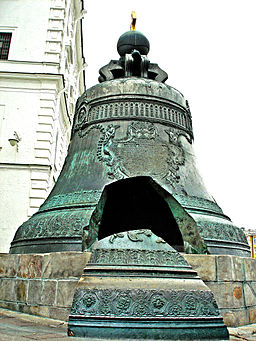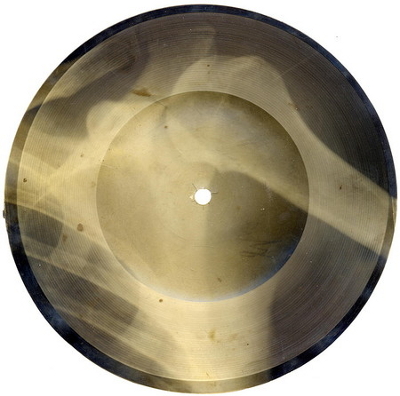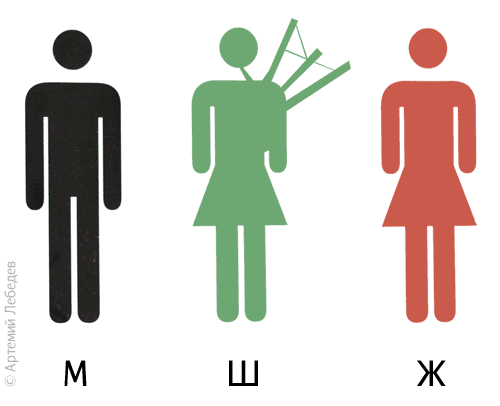Categories: "Music"
Колокол
The Russian word 'колокол' means 'bell'. It is a noun that is first syllable stressed in the singular. In the plural form of the word the grammatical ending is stressed:
| Sg | Pl | |
| Nom | кoлокол | колокола |
| Acc | колокол | колокола |
| Gen | колокола | колоколов |
| Pre | колоколе | колоколах |
| Dat | колоколу | колоколам |
| Ins | колоколом | колоколами |
Here are a few sample sentences:
| Колокол Свободы находится в Филадельфии. | The Liberty Bell is in Philadelphia. |
| Ты видел, как он звонил в церковный колокол в воскресенье? | Did you see him ring the church bell on Sunday? |
| Иногда, когда вы слушаете внимательно, вы можете услышать колокол старой башни с часами из соседнего города. | Sometimes, when you listen closely, you can hear the bell in the old clock tower in the nearby town. |
| Митя любил слушать звон колоколов. | Mitya loved to hear the chime of the bells. |

Photo Credit: Dennis Jarvis (RussiaB_2829 - Tsar Bell) [CC-BY-SA-2.0], via Wikimedia Commons
The Tsar Bell in Russia is the largest bell in the world. It weighs 201,924 kilograms (445,170 lb), and it is 6.14 meters (20.1 ft), tall. In comparison, the Liberty Bell in Philadelphia, Pennsylvania weighs only 900 kilograms (2,080 lb), and is only 1.5 meters (5 ft) tall. The Tsar bell could make any bell seem small in comparison though. It is made completely out of bronze, although it's hard to tell being that it's completely oxidized due to age. It has never been rung because it was broken during the metal casting. If it had been rung, it would have been extremely loud, and probably would have given anyone standing near it severe hearing loss. Unfortunately, it never got to be put in the clock tower, but it can be seen at the Kremlin in Moscow. It is decorated with beautiful relief images of angels, saints, Empress Anna, and Tsar Alexey.
Пластинка
Пластинка is a slang term for a грампластинка (gramophone record) and can be translated as record. Another popular slang term that is still around in both English and Russian is винил, which simply means vinyl.
Records were always a big deal in almost any household that had at least a tiny stray of affection for music and some type of a gramophone. Records of groups like the Rolling Stones, Pink Floyd and the Beatles were a huge deal amongst меломанов (passionate music lovers) because they were really hard to obtain, especially in the 60’s and most of the 70’s, the golden years of rock-n-roll. For example one of my relatives was allowed to occasionally travel abroad, and always brought back a couple of Led Zeppelin and Beatles albums for which people always offered him serious rubles. The main reason for this is because a lot of western music was considered to be ideologically inconsistent with the morals of the state and was largely frowned upon by the government. The biggest Soviet record label Мелодия (Melody), at first didn’t distribute certain albums and songs that were widely popular in the West at the time. In return, people found creative ways to get around this dilemma, like “burning” music onto records made out of large X-ray prints, known as запись "на костях" (recording "on the bones"). Fortunately by the mid 80’s, the restrictions began to faded off, finally warranting people to listen to what they liked and allowing numerous Russian rock bands like Кино and Зоопарк to go mainstream.
Photo of a record "on the bones." The music was recorded onto someone's X-ray print. I think I'll make one out of my grandfather's lung shots.
Here are some example sentences:
| B музыкальном магазине на Котовской улице вы можете купить диски, кассеты и старые пластинки. | At the music store on the Kotovskaya street you can buy discs, cassettes and old records |
| B фильме “Зомби по имени Шон” есть сцена, где два главных героя метают свои пластинки в большого уродливого зомби. | In the film “Shaun of the Dead” there is a scene where the two protagonists are throwing their records at a big ugly zombie. |
| B моей коллекции имеется много редких пластинок, за которые мне постоянно предлагают очень большие деньги, но я их не собираюсь пока продавать. | My collection includes many rare records for which I am constantly offered large sums of money, but I’m not planning to sell them for now. |
| Тело нашли на кухне под столом, убийца не взял ни денег, ни драгоценностей, нo супруга умершего сказала, что пропала пластинка Ramones "Ракета в Россию". | The body was found in the kitchen under the table, the killer did not take any money or jewelry, but the spouse of the deceased said that the Ramones "Rocket to Russia" record is missing. |
Волынка

I have never had a conversation in Russia about Scottish music, so I have never actually heard a Russian use the Russian word for bagpipe, which is волынка. Imagine my surprise when I came across a Russian website dedicated to bagpipes. The only thing I could think of that would be stranger would be an American website devoted to сало. Sample sentences:
| Волынка относится к числу наиболее древних музыкальных инструментов человечества. (source) | The bagpipe is among mankind's most ancient musical instruments. |
| — Твой брат всегда был глухим? — Нет, он оглох на концерте волынок. |
“Has your brother always been deaf?” “No, he lost his hearing at a bagpipe concert.” |
| У бабушки на даче раньше были тараканы, но как только она начала играть на волынке, так называемая музыка их выгнала всех. | Grandma's summer house use to have cockroaches, but as soon as she started playing the bagpipe, the so-called music drove them all away. |
Last Saturday I was at a concert starring the famous Bulgarian musician Theodosii Spassov, and to my great surprise right in the middle of his band was a guy playing the bagpipe. Who knew the Bulgarians had bagpipes? And about an eighth of the time he played the bagpipe while standing on one leg, drawing the other up either to practice yoga or support the bag. If you have any idea why a piper stands on one leg while piping, please let me know in the comment section.
It turns out that the Turks also have bagpipes, which they call tulum. The Czechs have bagpipes. The Spanish and Galicians have bagpipes. The Hungarians have bagpipes. The Italians have bagpipes. Even the Poles have bagpipes! What's even odder is that the Poles have nearly half a dozen words for the instrument, depending just where you are in Poland.
| bg | гайда |
| de | die Sackpfeife, der Dudelsack |
| es | gaita |
| fr | la cornemuse |
| pl | dudy, koza, gajdy, sierszenki, kobza |
| tk | tulum |
Попса
Попса is a slangy and somewhat deprecatory Russian word for pop music. Sample sentences:
| В принципе я люблю классическую музыку, но, правду сказать, я только слушаю попсу. | In theory I like classical music, but to tell the truth I only listen to pop. |
| — Почему ты постоянно слушаешь Диму Билана? Терпеть не могу такую попсу. | “Why are you constantly listening to Dima Bilan? I can't stand that kind of pop music.” |
| — Да что ты, мама. Это не попса, а поэзия души! | “You've got to be kidding, Mom. It's not pop music. It's heart-felt poetry!” |
| — Песня «Ночной хулиган» по-твоему поэзия? Господи, как мать я совсем не состоялась. | “You think the song ‘Nighttime Punk’ is poetry? Oh, Lord, I have completely failed you as a mother.” |
| Признаваемая всеми королева русской попсы — это Алла Пугачёва. | Alla Pugachova is the undisputed queen of Russian pop music. |
| Группа «Billy's Band» изобрела что-то между ласковой попсой и циничным бредом.¹ |
Billy's Band has come up with something halfway between sweet pop music and cynical delirium. |
One of the best thing about this decade is that it's easy to find a lot of current Russian music on the web. The links in the sample sentences above will take you to some pop music.
¹ Sentence adapted from this source.
Оркестр
The Russian word for orchestra is оркестр. Listening to a live orchestra is a very relaxing and enjoyable activity that many people take part in. It is important to have a good balance of different instruments within the orchestra to obtain the best sound quality. These instruments include the violin скрипка, viola альт, cello виолончель, and bass басовый. During high school, I was involved in the orchestra for four years. During these four years, I became a very good violin player and sometimes, my teacher said «Оля, как ты хорошо играешь на скрипке!» “Olga, how well you play on the violin!”. Because our orchestra consisted of very good players, we were fortunate to travel and compete against other high school orchestras. One day during class, our teacher told us «В конце года мы все поедем на Гавайи, чтобы соревноваться с другими школами!» “At the end of the year, we will all go to Hawaii to compete with other schools!” When I came home that day, I was very excited and began practicing hard to make sure that we get first place at the competition!
Don's additional notes: басовый can mean any of the bass strings. If you specifically want to indicate the double bass (contrabass), then you say контрабас.

